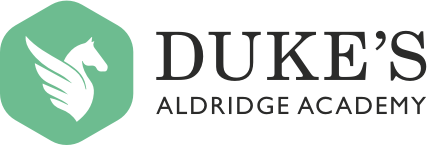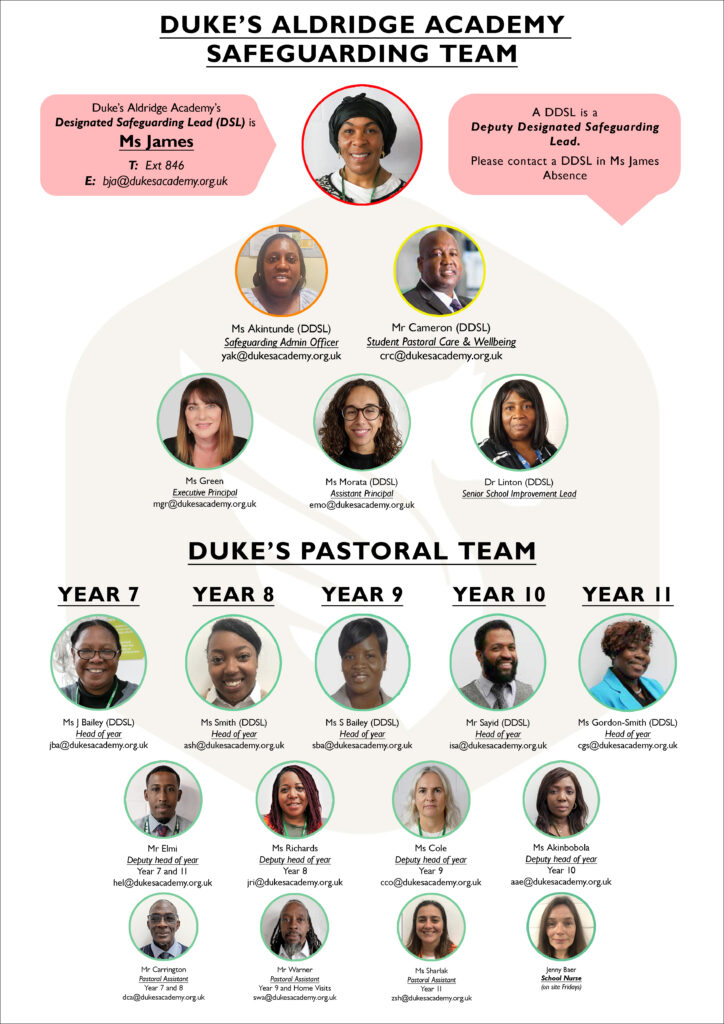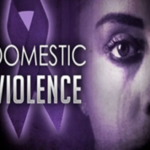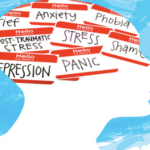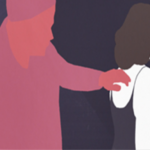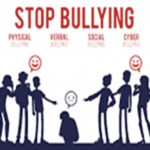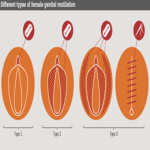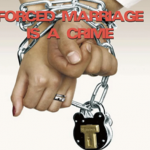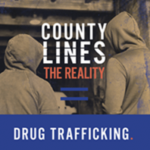During School Hours:
If you have a concern about a child you can contact the
Designated Safeguarding Lead:
Ms James on 07402 149273 or email: bja@dukesacademy.org.uk
You can call the main school office number on: 0208 801 0091 during the school day and ask to speak to the Safeguarding lead. You can also contact any of our Deputy Designated Safeguarding Leads listed below.
Deputy Designated Safeguarding Leads
Ms Akintunde: Safeguarding Admin Officer yak@dukesacademy.org.uk
Mr Cameron: Head of Student Pastoral Care and Wellbeing crc@dukesacademy.org.uk
Ms Morata: Assistant Principal emo@dukesacademy.org.uk
To find out more about the following topics, see below:
- Domestic Abuse
- Prevent: Radicalisation and Extremism
- Mental Health
- Sexual Harassment, Abuse and Harmful Sexual Behaviours
- Bullying
- Gangs
- FGM
- Forced Marriages / Honour Bases Killing
- County Lines
- Other Information
Domestic Abuse
If you’re worried about violence or abuse from your partner, ex-partner or a member of your family, you can get help and advice. If you’re in immediate danger, you should always phone the police on 999.
Domestic Abuse Support Services:
- Hearthstone
- NHS
- Domestic & Sexual Violence Support
- BAMBUUU
- Children and Young People affected by Abuse
- Are you experiencing domestic abuse? You are not alone
- The Center for Family Justice
- Domestic Abuse Helpline for Men
- Male Domestic Abuse Network
Prevent: Radicalisation and Extremism
There’s a chance that your child may meet people online or visit websites that could lead them to adopting extreme views or experiencing radicalisation. Curiosity could lead your child to seek out these people, or they could groom your child. They could then encourage your child to adopt beliefs or persuade them to join groups with extreme views and actions. To protect your child from radicalisation or to learn how young people might be targeted, navigate our advice hub. Explore expert tips on how to prevent radicalisation and where you can go for further support.
The Prevent Education Officer for Haringey Council is:
Support Services:
- Online Radicalisation
- Educate against hate
- Protect children from radicalisation
- Protecting children from radicalisation
- Advice for families
- Advice if you are worried about your teen
- Act Early
- Watch a parent’s story about her son:
Mental Health
Mental health includes our emotional, psychological, and social well-being. It affects how we think, feel, and act. It also helps determine how we handle stress, relate to others, and make healthy choices.1 Mental health is important at every stage of life, from childhood and adolescence through adulthood.
Mental Health Support Services:
- Barnet, Enfield and Haringey: beh-mht.nhs.uk
- Mind in Haringey: Mindinharingey
- Young Minds: Mental Health advice for parents
- Let’s Talk IAPT: IAPT
- Mental Health Resource Hub: Haringey Mental Health Hub
- Haringey Trailblazers: behcamhs.nhs.uk
- CAMHS: CAMHS – Barnet, Enfield and Haringey
Sexual Harassment, Abuse and Harmful Sexual Behaviours
Sexual harassment is a type of harassment involving the use of explicit or implicit sexual overtones, including the unwelcome and inappropriate promises of rewards in exchange for sexual favours. Sexual harassment includes a range of actions from verbal transgressions to sexual abuse or assault
Support Services:
- Protecting children from sexual abuse and exploitation
- How can I protect my child from sexual assault
- Talking to your child about online pornography
- Specialist helpline and other support: Sexual harassment
- Sexual harassment – Victim Support
- Advice, information and support for anyone who wants
- Support for victims of rape and sexual assault
- Safeline: believe in you
- Harmful sexual behaviour
- Protecting young people from online sexual abuse
Bullying
Bullying is behaviour that hurts someone else. It includes name calling, hitting, pushing, spreading rumours, threatening or undermining someone. It can happen anywhere – at school, at home or online. It’s usually repeated over a long period of time and can hurt a child both physically and emotionally.
Information about Bullying:
- Bullying- Parents Guide to Support
- Advice and support for parents about bullying
- Parents Advice Line
- LGBTQ groups in London
- London Friend Groups
- Say no to bullying
- School’s anti-bullying policy
- Bullying at School
- Anti-Bullying Alliance
- Information and advice for anyone dealing with Bullying
Gangs
An association of three or more individuals; Whose members collectively identify themselves by adopting a group identity, which they use to create an atmosphere of fear or intimidation, frequently by employing one or more of the following: a common name, slogan, identifying sign, symbol, tattoo or other physical marking, style or colour of clothing, hairstyle, hand sign or graffiti; Whose purpose in part is to engage in criminal activity and which uses violence or intimidation to further its criminal objectives.
Support Services:
- Gangs – Catch22
- Help and Support to Young people involved in gang culture
- Safecall: Helpline
- Advice for patents and carers on gangs
- Advice to parents
- Safer London
- Gangsline
- Criminal exploitation and gangs
FGM
Female genital mutilation (FGM) comprises all procedures that involve partial or total removal of the external female genitalia, or other injury to the female genital organs for non-medical reasons. The practice has no health benefits for girls and women and cause severe bleeding and problems urinating, and later cysts, infections, as well as complications in childbirth and increased risk of new-born deaths.
Support Services:
- How to report FGM
- We’ve got advice to help you keep children and young people safe.
- FGM: Organisations offering advice and support
- National FGM Support Clinics
- Female genital mutilation: help and advice
- Female genital mutilation (FGM)
- Haringey Safeguarding Children Partnership
- Female Genital Mutilation | Haringey Foster Carer Handbook
Forced Marriage/Honour bases killing
A forced marriage is where one or both people do not (or in cases of people with learning disabilities or reduced capacity, cannot) consent to the marriage as they are pressurised, or abuse is used, to force them to do so. It is recognised in the UK as a form of domestic or child abuse and a serious abuse of human rights. The criminal offence of forced marriage includes taking someone overseas to force them to marry (whether or not the marriage takes place) or marrying someone who lacks the mental capacity to consent to the marriage (whether or not they are pressurised).
Support Services:
- What you can do
- Organisations offering support
- Karma Nirvana
- Freedom Charity
- Honour-based abuse support organisations
- Halo – Break the Silence
County Lines
“County lines is a term used to describe gangs and organised criminal networks involved in exporting illegal drugs using dedicated mobile phone lines or other form of “deal line”. This activity can happen locally as well as across the UK – no specified distance of travel is required. Children and vulnerable adults are exploited to move, store and sell drugs and money. Offenders will often use coercion, intimidation, violence (including sexual violence) and weapons to ensure compliance of victims”
(Keeping Children Safe in Education)
Support Services:
- New support for victims of county lines exploitation
- New county lines support service will offer lifeline across England and Wales
- County Lines: Protecting Our Communities and Families
- Catch22 to provide support for victims of County Lines exploitation
- Parent webinars – county lines and criminal exploitation
These 14 videos help people understand the nature of County Lines County Lines (LGFL) including:
- What is county lines?
- Why is it vital that ALL school support staff attend county lines training?
- Why are even 8-10 year olds at risk?
- My borough doesn’t have much crime and there aren’t any gangs
- Top tips for parents
- Could county lines be more widespread than we realise?
Other Information
Rethink Mental Illness (external link)
Tel: 01823 365 308
Group open to Carers and people with mental illness.
- First Thursday of every quarter from 7pm, Suffolk House, 451 Green Lanes, N13 4BS
HAGA Families Services (external link)
Tel: 020 8801 3999
Offers advice and support, one-to-one appointments and group sessions for family and friends affected by drug and alcohol use. They offer a:
- Family, Friends and Carers Saturday support group online.
Markfield Project (external link)
Tel: 020 8800 4134
Inclusive services and support groups for disabled and non-disabled children, young people, adults and their families.
- Transition and Adulthood Carer Support Group, Fridays 10am-12 noon during a 10-week term
- Parent Carer Support Group, Fridays 10am-12 noon during a 12-week term
Carers First offers a range of support including the following:
- Providing information, advice and guidance specific to you as a carer and individual
- Supporting you with conversations with people including GPs, social services and hospitals
- Offering opportunities to access practical training to help you with your caring role, eg first aid training | workshops
- Providing access to talk to other carers and share peer support through their Carers First Facebook Community (external link)
- Supporting you to maximise you household income by assisting with checking your eligibility for benefits (external link)and financial support (external link)
- Providing opportunities to attend support groups and activities where you can meet others in a similar situation to yourself
- Staying in regular contact through our Carers Hub phone line, website, monthly e-bulletins and regular “What’s On” guides
- Providing opportunities for carers to become involved in helping develop and improve services for carers
Carers First provide a dedicated telephone support service through their Carers Hub. Someone is available to take your call from:
- Monday to Thursday, 9am-5pm
- Friday, 9am-4.30pm
Carers can call the hub to register at any time or ask questions about their caring role.
Please contact the Carers Hub on 0300 303 1555 for further information or you can email info@carersfirst.org.uk or visit the Carers First website:
- Carers First website – Haringey information (external link)
- Carers First website – main website (external link)
Support for children when a parent has cancer | Help & Support
Cancer Care Map: https://www.cancercaremap.org › article › support-for…
